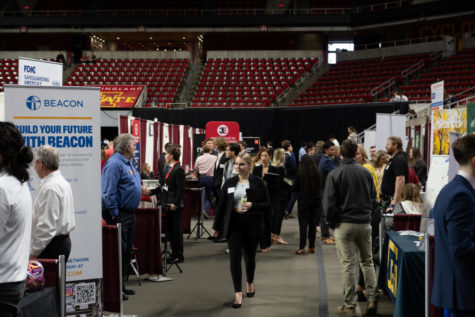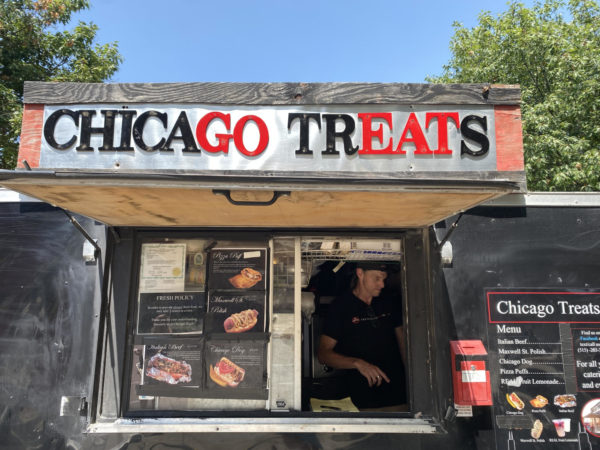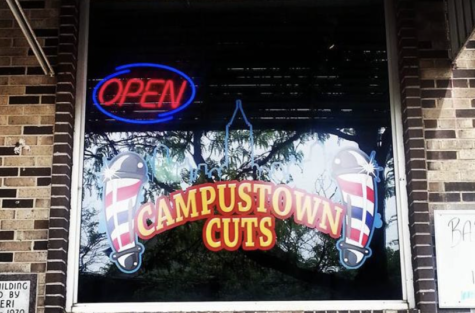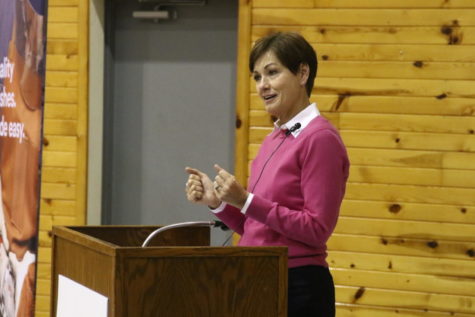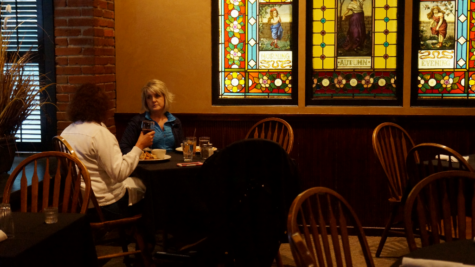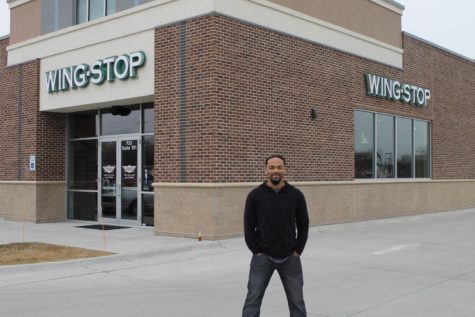Q&A City Council member Matthew Goodman
January 26, 2011
Q: As a business owner, what do you think of the proposed LANE4 changes?
I think that the project could do a lot of cool things for Campustown on its own. I think overall it’s a good thing, and it has the potential to bring a lot of amenities to the area that we don’t have, and that will diversify the area.
Q: As strictly a City Council member, does your opinion on the LANE4 project change at all?
It’s going to depend on the willingness of existing businesses and property owners to be involved in the process. There’s going to need to be a respect for those business owners throughout the process for this to work.
I won’t be voting on this issue because I have too much interest in the monetary issues, but there is going to need to be a great balance between the good they want to accomplish with the pains it might cause. If there’s a business that has to close down and relocate, there’s got to be a great deal of benefit coming from that and the project.
Q: How closely has the City Council been working with LANE4?
We’ve been listening to a couple of presentations. They did one a while ago and one in the fall. That time they came with some blocks of property they were looking at and the potential kinds of businesses, like a hotel and a pharmacy, they could bring in.
Q: How long has the City Council been considering making these changes in Campustown?
Revitalization of Campustown was made a goal in January 2010. I think then the rest of that spring the university talked with the city manager [Steve Schainker] and designed an RFP [Request For Proposal]. Then we went through the process of looking over submissions from all these companies that said, ‘Oh, we could do this,’ or, ‘We could do that.'” And out of that we chose LANE4.
The idea to remodel Campustown had been around for a long time, and the city council sought a partner in Iowa State.
Q: You moved to Campustown [from your Fighting Burrito Lincoln Way location] just this past summer. Why did you want to move here, and do you plan to stay?
I moved here because I love Campustown. I love Welch Avenue. I’m closer to the businesses so I can attract more customers. I guess it’s a financial and emotional tie I have to it.
And I plan to stay here forever, so I guess that’s a yes. I knew changes were being thought about, but as a business owner, I didn’t have time to think about anything; I didn’t have time to wait and see what happens. I didn’t have a choice; I had to take a risk.
Q: Do you think other businesses will choose to stay as well?
I think a large business like LANE4 coming in can be a bit intimidating for small businesses in Campustown.
Q: What do you like about Campustown as it is?
Well, everything. I liked the fact that street vending was allowed; I wouldn’t be here if it weren’t for that. I like the fact that start-up businesses can come here and give their ideas a shot for a low price. I like the university property mix. I like the energy of the young population — the excitement and diversity of the crowd. And I like how it’s on a hill. The city flows down here to all this energy within one block.
Q: You said Campustown is a great place for start-up businesses. How do you think that will change?
There are going to be fewer affordable properties. It is going to be a challenge for those without large sums of capital to support themselves.
Q: What do you think will change about your customer base?
Not a whole lot. There will be more visitors. Most major hotel action is a long ways away right now. South Duff [Avenue] is the primary beneficiary from visitors right now.
I think within 10 to 15 years there will be even more opportunities for the area than there are now, but it’s going to be a growing pains challenge.
Q: One rumor we’ve heard is that LANE4 plans to buy the buildings and lease them to you for more than you’re paying now. Is this true? What is your opinion on that?
Well, I’m not going to move. The rent will probably go up. That’s what you have to expect when you move from a rundown building built in … oh, probably the early 1900s from what I can tell to newly developed properties. The prices are going to be some of the highest in Ames; that’s just what happens.
I would guess that almost every business will end up relocating, or they’ll just disappear.
Q: What would you do to change Campustown?
I guess I’m jaded by my own experience. I love the people here who built things from small to big. I would incentivize small businesses and start-ups. I would use creative building and maybe put in some second stories or create programs to make renovating easier. It cost me two times as much to renovate this building [Fighting Burrito] than it did just to buy it. I believe in empowering young entrepreneurs with information of how changes can occur. I would urge these young entrepreneurs to do something different, something that hasn’t been done before. That’s what makes Campustown exciting.
There are lots of exciting things going on here even now. There are so many local people putting in their own money to make it better.
Q: You did your undergrad here. What was Campustown like then?
It feels the same. At least to me it does, but I’m a late-night guy. There are a lot more skinny jeans, Uggs and North Face. It was mostly college students then as it is now, but the traffic has changed. The Towers used to be to the south, and when two of them were closed, that changed to traffic. When [the Government of the Student Body] decided to pay for CyRide, those students out at the Towers started using the bus instead of walking through Campustown. [ISU] Dining changed things. I opened Fighting Burrito in August 2003. A few months later, the [Memorial Union food court] opened and had Burrito Works. That was a change. We are continuously challenged to be successful in the face of great challenges.
Q: You seem to have a positive attitude toward these changes. How do other Campustown business owners feel?
If done while respecting the interests of the stakeholders, the project could be very positive for the community. If it isn’t fair, that complicates their perspective.
The city of Ames, the university and LANE4 essentially need to respect those long-standing businesses because they’ve been investing in this community for decades. I’ve been here for 20 years.
Q: You said you got your start with street vending. Will LANE4 allow that to continue?
I think so. I love vending. It’s a very small, affordable way for those people without a lot of money to get in the game. Those ways are disappearing now. It’s a great opportunity to start out small, and it’s what makes the area unique.
Q: Anything you’d like to add?
The improvements will be better understood through ongoing discussions. For those who are frustrated or worried about the changes, they need to put honest discussion forward. They need to have a discussion about existing assets and potential ones.






